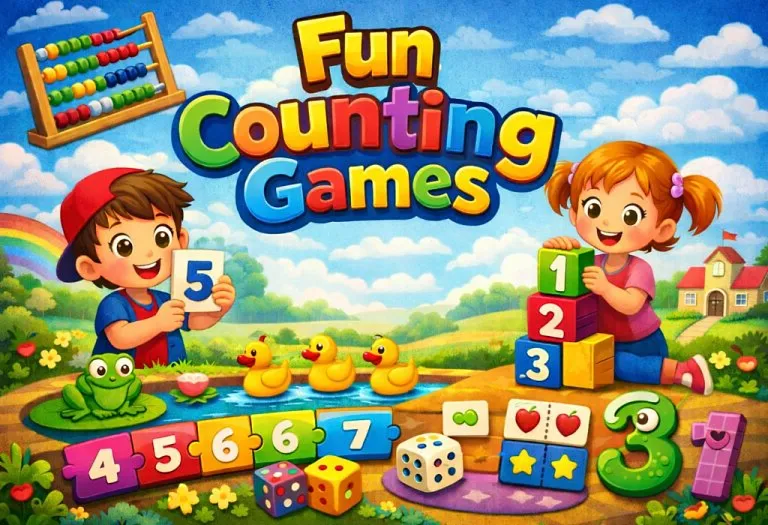Best Tips to Deal With a Sulking Child
The only thing most parents or caretakers want is for their children to be as happy as possible. You think about this constantly no matter where you are and what you do and plan things to do that will make the children happy, no matter how long the effect of happiness will stay in them. However, there will come a time when they start sulking and whining about the littlest things despite all of your efforts, leading to frustrations and anger. Although we use the term “children” here, this is not just seen in younger children since teens often do this too! If your children are at this sulking and frustrating phase of their lives, read on to learn more about the best tips to deal with a sulking child and what you can do to improve things!
What Is a Sulking Behaviour in Children?
Sulking, otherwise commonly referred to as pouting, is a silent temper tantrum that many children experience. Children who sulk are often moody and express their emotions through sulking, whining, or pouting. All of these are done to show some negative response to the environment around them, and they do this to show they are angry, unpleasant, frustrated, or more. In some children, this could even be a symptom of a significant personality and mood disorder.
The sulking behaviour is very common in young children and teens, and it is vital for the parent or the caretaker not to give in to this kind of behaviour. Trying to reason with or blame your children will only worsen the situation, which might make them do it more.
Why Do Children Sulk?
Children love using insidious methods like pleading, shouting, whining, and shouting to drive their parents crazy. Even when a small thing does not go their way, they might get hurt, no matter how many of your attempts to keep them happy. If you are asking yourself, “Why is my child so moody all the time?” then here are some such reasons you might be missing out:
1. They Are Not Able to Express Their Feeling Through Words Yet
Small children are not able to express their displeasure or frustration through vocabulary and words. So, some ways they know how to express it are through various sulking methods they are used to.
2. They Lack Emotional Intelligence
Most children cannot express their negative feelings in a normal, healthy way because they lack emotional intelligence. This is not seen just in kids—teens can also lack emotional intelligence, leading them to sulk instead of communicating. You might even find them sulking for no reason because they cannot recognise their negative feelings.
3. They Are Scared to Communicate
Even when they know how to express their negative feelings through vocabulary, some children will not express them because of the repercussions they might face from their strict caretakers or parents. So, the only way they feel they can express their negative emotions is through sulking because it feels safer than communicating healthily.
4. They Are Trying to Manipulate You
If you are the type of caretaker or parent who gives into the children’s sad expressions and lets them have their way whenever they do it, you unknowingly gave them a potent tool. They use this tool to manipulate you whenever they require things to go their way.
5. They Need Attention
For most children, any attention they get is good attention. Therefore, even if they can attract attention from their parents by angering them through sulking, it is still good attention as long as the parent reacts and takes time to acknowledge the child.
How to Deal With Your Sulking Child?
There are many ways to deal with this behaviour, some of which could help you improve things for them. A few tips on dealing with pouting child are:
1. No Consequences
Responding to a sulking baby by accusing and blaming him or trying to reason with him will not always work since this can lead to more tantrums in the future. Therefore, one way to deal with this is to let them sulk away. When they are sulking, they do not give in to their way to reward them with attention (3). No matter how long, ignoring them and allowing them to act however they want will force them to reduce this habit since they know you will not respond to such behaviour.
2. A Rule Against Sulking
Teaching a child not to sulk will take a lot of time, but making a rule against sulking in your personal space will take their ability to use it against you. This is a great way to stop them from showing this behaviour because, as a result, they will learn that it is not productive to sulk when you are not seeing them and when they cannot see you.
3. Nurturing the Child
Spending quality time to nurture them and their growth can do much good. Good parental attention can provide stability and care for your children (5). This also helps them stay happy and open about their problems to you in a healthy way, thereby preventing them from sulking.
4. Visual Cues
Visual cues tend to work with younger, moody kids. In this method, you must call her name, get her attention, mimic her pouting expression, and use your fingers to turn it into a smile. This might influence them to do the same, and though it might not always work, you can always try it.
5. Encourage Them to Use a Diary
If your children find it hard to communicate through speech, ask them to write it down in their diary. Maintaining a journal might help them overcome feelings and reduce a child’s sulking.
6. Encourage Verbal Ways of Expressing Feeling
When you notice your children starting to sulk or pout, try encouraging them to express their feelings through words. This can help them vent their negative emotions in ways you can understand and inspire them to do this more often. However, ensure you do not give in to the sulking even if they do not listen. The point is to teach them that verbal communication can be healthier and more effective (1).
7. Providing a Pleasant and Safe Atmosphere
Your home should be the first place where your children feel safe and free to express their feelings. Therefore, create and maintain a safe atmosphere around them, especially when they behave sulking. Healthily communicate with your sulking baby, avoid blaming or arguments at home, and ensure your child feels comfortable in the environment to share their feelings (6).
8. Avoid Overreactions
When your child annoys you by sulking more often, try to calm down and not display harsh behaviour towards them (4). If they do it for your attention without specific reason at home, ignore them and let them learn that you will not give in to their unreasonable mood swings.
9. Check What Is Stressing Them Out
Make sure your children are not stressing about stuff happening around them. Avoid high expectations that are too much to handle and force them to study or work longer hours than required. Please encourage them to have an excellent play-study balance and avoid showing them your tension and frustrations since this might make them more anxious.
10. Ensure They Are Getting Enough Nutrition
Nutritional deficiency can be another reason children often experience mood swings (2). Therefore, ensure you provide your children with sufficient nutritious food for a healthy and active lifestyle! Good physical health will always ensure better psychological health as well.
FAQs
1. How can I understand the reasons behind my child’s sulking?
Sulking can be a way for children to express their emotions when they feel upset, frustrated, or misunderstood. Observing your child’s behaviour and asking open-ended questions can help you identify the underlying causes of their sulking.
2. When should I seek professional help for my child’s sulking behaviour?
If your child’s sulking persists over an extended period, interferes with their daily activities, or seems to be affecting their well-being, it may be time to seek professional guidance from a therapist or counsellor. They can help identify any underlying issues and provide targeted support.
3. How can I encourage my child to express their feelings instead of sulking?
Encouraging open communication and providing a safe space for your child to express their emotions can help reduce sulking. Ask questions about their feelings, listen actively, and validate their emotions to foster healthy expression.
Every parent will have to go through this stage of life when their child sulks about everything. However, when you react appropriately to a pouting child, you can teach your children to express negative feelings and deal with everything around them very healthily!
References/Resources:
1. Taming Tempers; Nemours KidsHealth; https://kidshealth.org/en/parents/temper.html
2. Zielińska. M, Łuszczki. E, Dereń. K; Dietary Nutrient Deficiencies and Risk of Depression (Review Article 2018–2023); PubMed Central; https://www.ncbi.nlm.nih.gov/pmc/articles/PMC10255717/
3. Angry Kids: Dealing With Explosive Behavior; Child Mind Institute; https://childmind.org/article/angry-kids-dealing-with-explosive-behavior/
4. Dealing with child behaviour problems; NHS; https://www.nhs.uk/conditions/baby/babys-development/behaviour/dealing-with-child-behaviour-problems/
5. Complete Guide to Managing Behavior Problems; Child Mind Institute; https://childmind.org/guide/parents-guide-to-problem-behavior/#block_64cbd9b5b5f22
6. Sperling. J; 4 parenting tips to break the negativity loop; Harvard Health Publishing; https://www.health.harvard.edu/blog/4-parenting-tips-to-break-the-negativity-loop-2020062320219; June 2020
Also Read:
How to Handle Difficult Kids
How to Handle Aggression in Kids
How to Deal with a Stubborn Child?
Tips for Parents to Handle Naughty Kids
Effective Tips to Deal With a Defiant Child
Was This Article Helpful?
Parenting is a huge responsibility, for you as a caregiver, but also for us as a parenting content platform. We understand that and take our responsibility of creating credible content seriously. FirstCry Parenting articles are written and published only after extensive research using factually sound references to deliver quality content that is accurate, validated by experts, and completely reliable. To understand how we go about creating content that is credible, read our editorial policy here.























